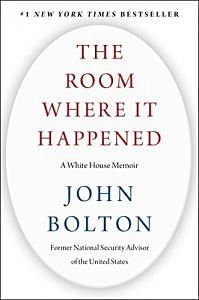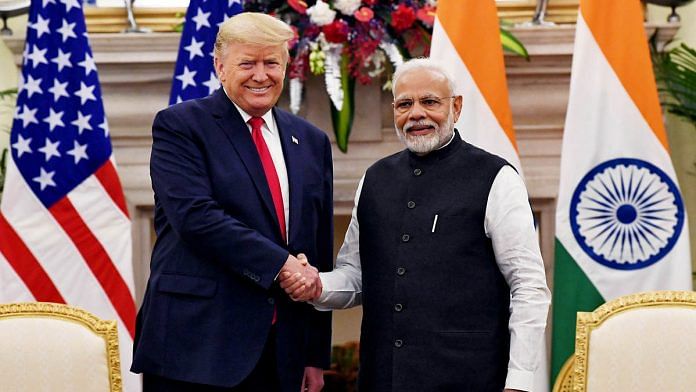One issue that should have been among the easiest to resolve, but which was actually one of the most exhausting, was how tightly to squeeze Iran’s oil industry. The common response to any proposal to tighten oil sanctions against Iran (or Venezuela, for that matter) was invariably that global oil prices would spike dramatically. Most of this noise came from [Treasury Secretary] Steven Mnuchin and Treasury, an unexpected source of expertise on global oil markets. National Economic Council Chairman Larry Kudlow, Energy Department Secretary Rick Perry, and Council of Economic Advisors Chairman Kevin Hassett repeatedly argued that global supply and capacity levels would mitigate the price effects of tighter sanctions.
Hassett stressed the interesting statistic that increases in domestic US oil production since Trump’s election dwarfed the decreases in Iran’s sales implied by eliminating waivers on purchasing Iranian oil granted to some countries, mistakenly in my view, when sanctions took effect in November 2018. Moreover, he pointed out, given America’s enhanced role as an oil producer, rising oil prices actually boosted US GDP, even if higher consumer prices had corresponding negative effects. Overall, for us, it was basically a wash economically.
But Mnuchin’s arguments carried weight because Trump invariably believed our allies were not doing enough. This was certainly true on Iran. France, Germany, and the UK spent their time trying to save the Iran nuclear deal rather than pressuring the ayatollahs. Neither they nor Americans who supported Obama’s deal ever believed unilateral US sanctions could devastate Iran’s economy, although that was exactly their effect. They opposed proving the point more graphically by making the sanctions ever stricter. Accordingly, success in tightening sanctions was mixed. Had we hard-liners persuaded Trump to bear down on Mnuchin, we would have seen even more dramatic economic decline in Iran, but that was not to be. Trump could initiate policies, but his lack of consistency, steadfastness, and resolve invariably undercut them. So it was on Iran sanctions.
Also read: India resists US pressure on S-400 in Pompeo-Jaishankar meet, gives in on Iran oil
One important loophole for Iran was the oil waivers granted to eight countries (Taiwan, China, India, Japan, South Korea, Italy, Greece, and Turkey) when renewed sanctions took effect in November 2018, six months after US withdrawal from the nuclear deal, noted above. Taiwan, Greece, and Italy quickly halted purchases of Iranian oil, so not renewing their waivers was a given. State’s bureaucrats found endless reasons to extend the other waivers, as “clientitis” took hold. “But India is so important,” or “Japan is so important,” said officials, arguing the interests of “their” countries rather than the US interests at stake.
One of the worst cases involved India, which, like the others, was buying Iranian oil at prices well below the global market because Iran was so desperate to make sales. India complained it would be disadvantaged not only because of having to find new suppliers, but also because the new sources would insist on prevailing market prices! India’s making this argument was understandable, but it was incomprehensible that US bureaucrats echoed it sympathetically.
Pompeo was wobbly, caught between conflicting pressures. He also doubted the Arab oil-producing states would really fulfill their promises to boost production to make up for the “loss” of Iranian oil under the waivers. And of course, global oil prices would spike. Trump, while oscillating on any given day on any given issue, had been vibrating increasingly on the “end the waivers” side of the scale. He said expressly in the Oval on March 25, “I’m ready to cut them off,” and on April 12 said, “Increase the sanctions. Max them out, do it right away, including on the oil,” and on April 18 said, “Go to zero.” In a phone call with Pompeo, Trump had not been sympathetic to India’s Prime Minister Narendra Modi, saying, “He’ll be okay.” I recall a similar conversation reflecting Trump’s indifference to notifying allies about waiver decisions. Considering one foreign leader’s trip to Washington, which also raised the ending of a waiver, Trump had a ready suggestion: “Do it before he gets here, and then I’ll say I didn’t know anything about it,” and “Do it early in the week. I don’t want to be anywhere near it.”
Also read: Iranians are realists, not disappointed with India not importing oil from them: Jaishankar
On April 22, after six months of endless, needless, time-consuming opposition by many within the Administration, but with widespread Republican congressional support for so doing, the White House announced the end of the waivers.
Many in the media, who had listened to the bureaucracy’s leaks to the contrary, were surprised. US military and civilian personnel in the region were rightly on alert for an appropriate period, and we made it clear we would hold Iran responsible for any retaliation. This was an important step forward, although the waivers should never have been granted to begin with. The original sanctions were announced in May 2018, taking effect six months later. That was more than enough time for all concerned to make alternative arrangements. The real conclusion was that sanctions for any new transactions should have taken immediate effect upon the Iran nuclear deal’s termination. It may have been appropriate to grandfather existing transactions that had been “innocently” entered into, but six months to wind these deals down was far too generous. Ninety days was plenty. Giving Iran a full six months before either existing or potential transactions were brought under the ax was a gift from Allah Tehran didn’t deserve. The next Administration should fix Mnuchin’s approach immediately so everyone will be on notice that sanctions are an economic weapon we will use effectively, not something we feel guilty about deploying.
 This excerpt from The Room Where It Happened: A White House Memoir by John Bolton by US former national security advisor John Bolton has been published with permission from Simon & Schuster.
This excerpt from The Room Where It Happened: A White House Memoir by John Bolton by US former national security advisor John Bolton has been published with permission from Simon & Schuster.



